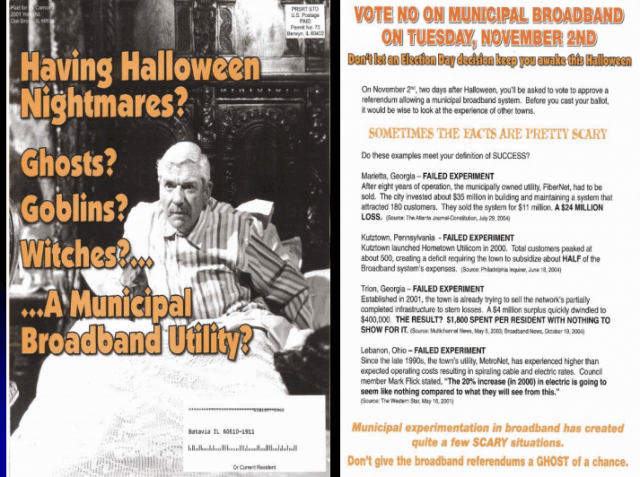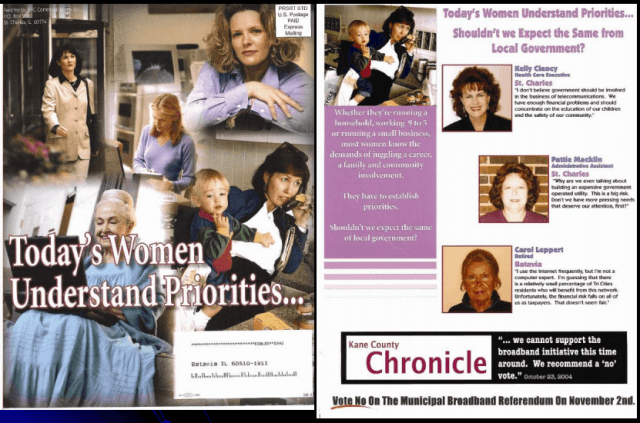
This week’s revelation that a Comcast-controlled enterprise deliberately and consciously removed news content critical of Comcast and its public policy lobbying practices speaks to the impact media concentration has on news dissemination.
It also exposes the close relationship Comcast maintains with non-profit groups it financially supports, encouraging the kinds of positive letters about its operations the New York Public Service Commission can now find on file in this case.[1]
 The group involved in the current controversy reportedly received $350,000 from Comcast and promptly began a vocal opposition campaign against Net Neutrality, an open Internet policy Comcast still opposes being enacted as official FCC policy.[2]
The group involved in the current controversy reportedly received $350,000 from Comcast and promptly began a vocal opposition campaign against Net Neutrality, an open Internet policy Comcast still opposes being enacted as official FCC policy.[2]
Professor Todd Gitlin of Columbia University called Comcast’s close relationship with the Minority Media and Telecommunications Council (MMTC) the “closest thing I can imagine to a political quid pro quo. The fact NewsOne saw fit to delete a report that they previously posted without any claim that anything was mistaken in the report tells you something about their commitment to open discourse.”
Jeff Cohen, an associate professor of journalism at Ithaca College, also commented on the NewsOne decision. “Just as corporate cash can corrupt civil rights groups, this incident shows how corporate power can corrupt and censor the news.”[3]
Time Warner Cable operates local news channels in most of the major New York cities it serves. These channels will also come under the umbrella of Comcast, giving it an even greater news voice through its NBC and Telemundo networks, MSNBC, local cable news operations, and owned and operated local broadcast affiliate stations in New York City.
In closing, as a reminder to the Commission, Comcast’s list of broadcast, cable and digital media assets is already enormous and will grow even larger if a merger with Time Warner Cable is approved.[4]
Comcast-NBCUniversal
Broadcast Television
NBC Television Network
NBC Entertainment
NBC News
NBC Sport Group
Universal Television (UTV)
Universal Cable Productions
NBCUniversal Domestic Television Distribution
NBCUniversal International Television Distribution
NBC Local Media Division
NBC New York (WNBC)
NBC Los Angeles (KNBC)
NBC Chicago (WMAQ)
NBC Philadelphia (WCAU)
NBC Bay Area (KNTV)
NBC Dallas/Fort Worth (KXAS)
NBC Washington (WRC)
NBC Miami (WTVJ)
NBC San Diego (KNSD)
NBC Connecticut (WVIT)
NBC Everywhere
LX TV
Skycastle Entertainment
Telemundo
KVEA (Los Angeles)
WNJU (New York)
WSCV (Miami)
KTMD (Houston)
WSNS (Chicago)
KXTX (Dallas/Fort Worth)
KVDA (San Antonio)
KSTS (San Francisco/San Jose)
KTAZ (Phoenix)
KNSO (Fresno)
KDEN (Denver)
KBLR (Las Vegas)
WNEU (Boston/Merrimack)
KHRR (Tucson)
WKAQ (Puerto Rico)
KWHY (Los Angeles) (Independent)
Television Channels
Bravo
Chiller
CNBC
CNBC World
Comcast Charter Sports Southeast
Comcast Sports Group
Comcast SportsNet Bay Area
Comcast SportsNet California
Comcast SportsNet Chicago
Comcast SportsNet Houston
Comcast SportsNet Mid-Atlantic
Comcast SportsNet New England
Comcast SportsNet Northwest
Comcast SportsNet Philadelhpia
SNY
The Mtn.-Mountain West Sports Network
CSS
Comcast Sports Southwest
New England Cable News (Manages)
NBC Sports Network
The Comcast Network
E! Entertainment Television
G4
Golf Channel
MSNBC
mun2
Oxygen Media
Cloo
Sprout
The Style Network
Syfy
Universal HD
USA Network
The Weather Channel Companies
Syfy Universal (Universal Networks International)
Diva Universal (Universal Networks International)
Studio Universal (Universal Networks International)
Universal Channel (Universal Networks International)
13th Street Universal (Universal Networks International)
Movies 24 (Universal Networks International)
Hallmark Channel (non-U.S.) (Universal Networks International)
KidsCo (Interest) (Universal Networks International)
Film
Universal Pictures
Focus Features
Universal Studios Home Entertainment
Parks and Resorts
Universal Parks and Resorts
Digital Media
DailyCandy
Fandango
Hulu (32%)
iVillage
NBC.com
CNBC Digital
Plaxo
Communications
XFINITY TV
XFINITY Internet
XFINITY Voice
Sports Management
Comcast-Spectator
Philadelphia Flyers
Wells Fargo Center
Global Spectrum (Public Assembly Management)
Ovations Food Services
Front Row Marketing Services
Paciolan
New Era Tickets (ComcastTIX)
Flyers Skate Zone
Other
Comcast Ventures, which is invested in numerous companies.
Time Warner Cable
Local channels`
Time Warner Cable News[5]
NY1: Manhattan, Bronx, Brooklyn, Queens, Staten Island
NY1 Noticias: Spanish language news for New York City
NY State of Politics Blog
TWC News Capital Region (Albany, Amsterdam, Saratoga and Berkshire counties)
TWC News Central NY (Syracuse, Ithaca/Cortland, Utica/Rome)
TWC News Hudson Valley
TWC News Northern NY (Watertown/Ft. Drum)
TWC News Southern Tier (Elmira/Corning, Binghamton/Oneonta)
TWC News Western NY (Buffalo, Finger Lakes Region, Jamestown, Rochester, and Batavia)
Regional Sports Networks
Metro Sports
Time Warner Cable Sports
Time Warner Cable SportsNet
Time Warner Cable Deportes
TWC Sports 32
SNY
Other Holdings
Adelphia — former cable television company in PA
NaviSite — cloud and hosting services company
Insight Communications — cable operator
DukeNet Communications — Fiber optic network
Time Warner Cable Internet
Time Warner Cable Media (advertising)
—
[1]http://documents.dps.ny.gov/public/MatterManagement/CaseMaster.aspx?MatterCaseNo=14-m-0183
[2]http://www.publicintegrity.org/2013/06/06/12769/civil-rights-groups-fcc-positions-reflect-industry-funding-critics-say
[3]http://www.republicreport.org/2014/comcast-affiliated-newsite-censored-my-article-about-net-neutrality-lobbying/
[4]https://archives.cjr.org/resources/index.php
[5]http://spectrumlocalnews.com/


 Subscribe
Subscribe



 If a high-profile phone or cable company moves to enact an REIT, that might be enough to provoke Congress to act, warned Moffett.
If a high-profile phone or cable company moves to enact an REIT, that might be enough to provoke Congress to act, warned Moffett. If your non-profit or civil rights group feels that part of its core mission is writing letters in favor of a giant cable company’s plans to upsize, we’d like to welcome you to Stop the Cap’s new Alert Your Donor Base program, a free public service from a group that does not accept contributions from corporate donors, big or small. All too often, your love letters have gone unnoticed by your contributors who believed their money was being used to help the needy and downtrodden, not rich corporate executives, shareholders and Wall Street investment banks.
If your non-profit or civil rights group feels that part of its core mission is writing letters in favor of a giant cable company’s plans to upsize, we’d like to welcome you to Stop the Cap’s new Alert Your Donor Base program, a free public service from a group that does not accept contributions from corporate donors, big or small. All too often, your love letters have gone unnoticed by your contributors who believed their money was being used to help the needy and downtrodden, not rich corporate executives, shareholders and Wall Street investment banks. 
 If your non-profit or civil rights group has or is thinking of writing a glowing letter in favor of the merger of Comcast and Time Warner Cable, Stop the Cap! is delighted to announce our new Alert Your Donor Base service. Each time we discover a letter submitted to a state or federal regulator announcing your enthusiastic support for the Worst Company in America marrying the second worst, we’ll be sharing that exciting news, along with any contributions we discover Comcast has sent your way, to your members and supporters.
If your non-profit or civil rights group has or is thinking of writing a glowing letter in favor of the merger of Comcast and Time Warner Cable, Stop the Cap! is delighted to announce our new Alert Your Donor Base service. Each time we discover a letter submitted to a state or federal regulator announcing your enthusiastic support for the Worst Company in America marrying the second worst, we’ll be sharing that exciting news, along with any contributions we discover Comcast has sent your way, to your members and supporters.